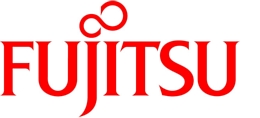|
| Tuesday, 4 February 2020, 18:35 JST | |
| |  | |
Source: Fujitsu Ltd | |
|
|
|
|
| World's first adoption of a commercial supercomputer using Fugaku technology |
TOKYO, Feb 4, 2020 - (JCN Newswire) - Fujitsu today announced that it has received an order for the next generation of supercomputer system from Nagoya University's Information Technology Center. The system is scheduled to start operation in July 2020.
For the first time in the world, this system will adopt 2,304 nodes of the Fujitsu Supercomputer PRIMEHPC FX1000(1), which utilizes the technology of the supercomputer Fugaku developed jointly with RIKEN. In addition, a cluster system, connecting 221 nodes of the latest x86 servers Fujitsu Server PRIMERGY CX2570 M5(2) in parallel, as well as storage systems are connected by a high-speed interconnect. The sum of the theoretical computational performance of the entire system is 15.88 petaflops(3), making it one of the highest performing systems in Japan.
As a national joint usage/research center, the Information Technology Center of Nagoya University provides computing resources for academic use to researchers and private companies nationwide. It is currently operating a supercomputer system consisting of Fujitsu Supercomputer PRIMEHPC FX100 and other components. This time, the Center is planning to innovate the system in order to fulfill the large-scale calculation demand from researchers in joint usage nationwide, as well as the new calculation requirement for supercomputers represented by data science. Fujitsu won the order for this system in recognition of its proposal that concentrates the technical capabilities of Fujitsu and Fujitsu Laboratories Ltd.
With the new system, Nagoya University's Information Technology Center will contribute to various research and development activities. These include the conventional simulation of numerical computation to unravel the mechanism of typhoons and design new drugs. Moreover, the new system will develop a technology in the medical field that supports diagnoses and treatment, while apply AI in developing automatic driving technology.
Fujitsu will continue to support the activities of the Center with its technology and experience nurtured through the development and offering of world-class supercomputers. By providing PRIMEHPC FX1000 worldwide, the company will also contribute to solving social issues, accelerating leading-edge research, and strengthening corporate advantages.
Comment by Kensaku Mori, Director, The Information Technology Center of Nagoya University
In recent years, the digitization of university education and research activities has increased the demand for computing. In addition to such areas as extreme weather including super typhoons, earthquakes, and tsunamis, which are closely related to the safety and security of people's lives, chemical fields such as molecular structure and drug discovery, and simulations in basic sciences such as space and elementary particles, there is an ever-increasing demand for computing in the fields of medicine and mobility, including artificial intelligence and machine learning. Also important are the data consumed and generated in computing, the networks that connect them, and the visualization of knowledge discovery from computing and data. Equipped with essential functions for such digital science in universities, the new supercomputer will be offered not only to Nagoya University but also to universities and research institutes nationwide, contributing to the further development of academic research in Japan.
(1) Fujitsu Supercomputer PRIMEHPC FX1000 Features the CPU A64FX adopting Scalable Vector Extension (SVE) which is an extension of the Arm v8-A architecture for supercomputers. It achieves high performance per power as well as high computational efficiency due to the high memory bandwidth of HBM2 (High Bandwidth Memory), a high-performance stacked memory.
(2) Fujitsu Server PRIMERGY CX2570 M5 Fujitsu's latest x86 server. It has a 2nd Generation Intel Xeon Scalable Processors and the NVIDIA V100 Tensor Core GPU that is ideal for AI and deep learning applications, with high bandwidth, energy efficient interconnect NVIDIA NVLink between the GPUs. PRIMERGY CX 2570 M5 is equipped with up to 4 GPU computing cards per server and connects them via NVIDIA NVLink for ultra-fast communication.
(3) Petaflops Short for peta floating-point operations per second. Peta is an SI prefix indicating one quadrillion, or 10 to the power of 15, indicating performance of one quadrillion floating-point operations per second.
Topic: Press release summary
Source: Fujitsu Ltd
Sectors: Cloud & Enterprise
https://www.acnnewswire.com
From the Asia Corporate News Network
Copyright © 2024 ACN Newswire. All rights reserved. A division of Asia Corporate News Network.
|
|
|
|

|
|
|
|